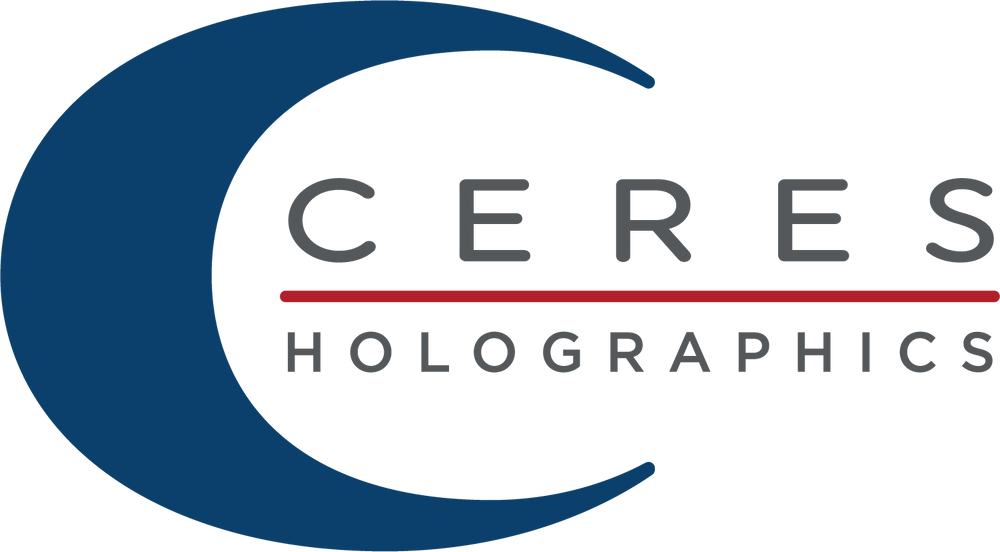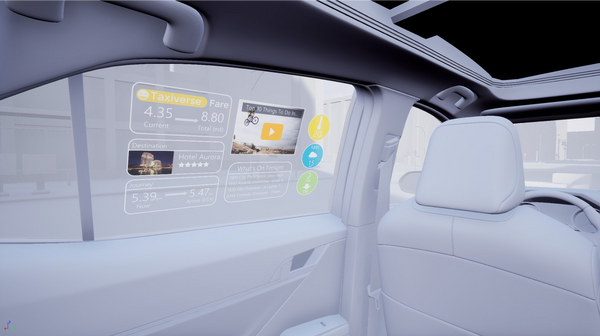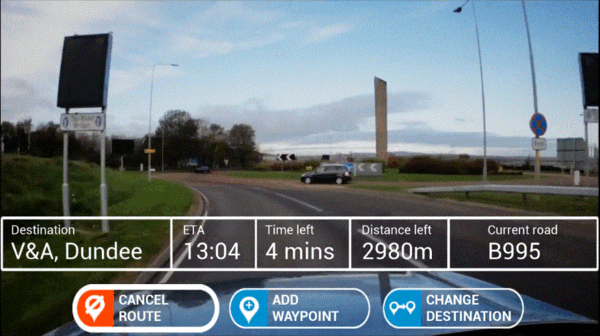CES 2020, LAS VEGAS, Nevada, USA – Jan. 8, 2020 - Ceres Holographics, an innovative developer of thin-film Holographic Optical Elements (HOEs) for next-generation transparent display (TD) and augmented reality head-up-display (AR-HUD) solutions, today announced its latest TD prototype system that offers key advantages for automotive applications including full-color display, wide field of view and desired small package size. The system highlights the unique advantages of aligning Ceres’ HOE design, digital mastering, and replication equipment with the emerging class of automotive DLP technology from Texas Instruments.
“The automotive industry is undergoing a massive paradigm shift towards electric and autonomous vehicles that's fundamentally altering the driving and passenger experience and fueling demand for low-cost, high-performance transparent display and AR-HUD systems,” said Andy Travers, Chief Executive Officer of Ceres Holographics. “We are rolling out full-color, in-car transparent display applications on the front, side and rear car windows that are powered by Ceres HOEs, delivering optical power into car glazing illuminated with projectors using TI’s automotive digital micromirror devices (DMDs). By combining Ceres precision digitally mastered HOEs with the TI DLP5530-Q1 chipset, we dramatically reduce the projector package size while maximizing the end display performance.”
“Traditionally, the size of optic-based transparent display and augmented reality head-up displays has been too large to be widely used across the automotive industry,” said Tobias Nass, DLP Automotive manager at Texas Instruments. “But now, with the combination of DLP automotive technology and holographic optical films, developers can solve the number one challenge for augmented reality HUDs or transparent windscreen displays and realize a smaller projector package size that’s easier to integrate into their cars.”
The transparent display system showcases the broad range of capabilities and superior performance of the Ceres technology and digitally mastered HOEs. The whole system facilitates features such as over-the-air updates for reconfigurable cluster layout and driver and passenger autonomous view, improving both driver and passenger safety and comfort.
Ceres HOE technology has already been successfully demonstrated in OEMs prototype cars with HOEs integrated inside full-size windscreens, but only with modified consumer projectors. Ceres will focus on producing HOE designs with projectors using the TI‘s DLP5530-Q1 chipset for new in-car display applications. Ceres is currently engaged in commercial development programs with several global automotive OEMs and supporting Tier One suppliers who are all targeting start of production (SoP) dates between 2022 and 2025.
Together with windshield interlayer and lamination partners, Ceres is building real HOE windshield samples, allowing automotive OEMs to test the complete system and prove they deliver the desired user experience and satisfy automotive quality and safety requirements.
About Ceres
Founded in 2009, in St. Andrews, Scotland, Ceres Holographics uses its proprietary technology to design, digitally master, and replicate next-generation Holographic Optical Elements (HOEs) for new transparent display (TD) and augmented reality heads up display (HUD) systems. With extensive knowledge of holographic photopolymer films and in-house expertise in photonics and light-guiding, Ceres works with partners and customers to deliver optical systems with precision-engineered, thin-film HOEs enabling mass-market applications in automotive, transportation, aerospace and wearable technology.
###



